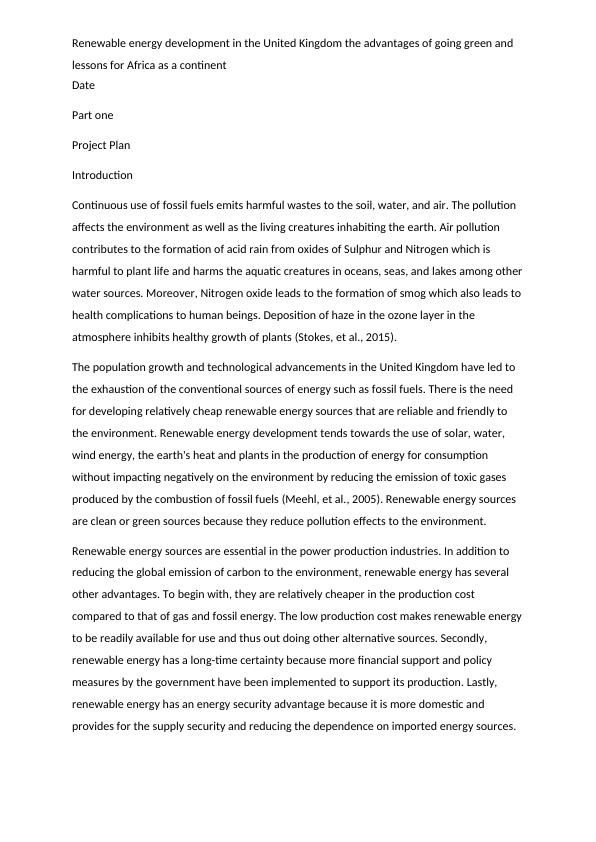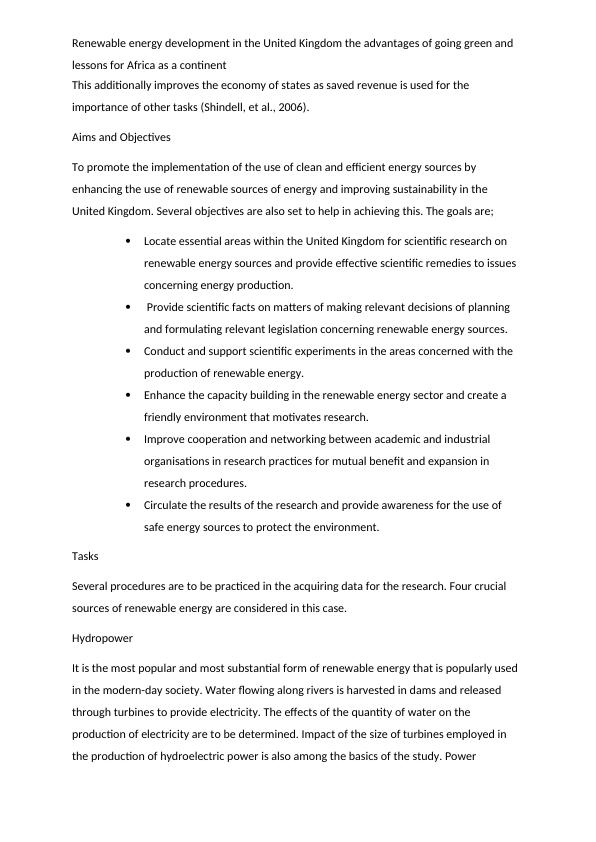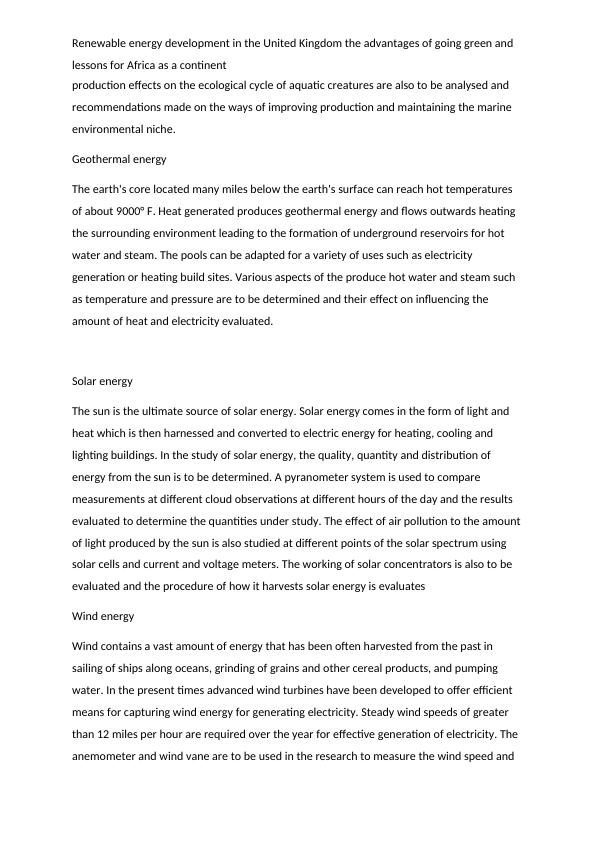Renewable Energy Development in the UK: Advantages and Lessons for Africa
A research project on renewable energy development in the UK, focusing on the advantages of going green and lessons for Africa, with consideration for hydrocarbon reduction goals. The assignment requires a project plan and a literature survey.
15 Pages5127 Words186 Views
Added on 2023-06-12
About This Document
This article discusses the advantages of renewable energy development in the UK and the lessons that Africa can learn from it. It explores the different sources of renewable energy, including hydropower, geothermal energy, solar energy, wind energy, and bioenergy. The article also covers the UK's 2020 carbon target and the progress made in the country's green energy industry.
Renewable Energy Development in the UK: Advantages and Lessons for Africa
A research project on renewable energy development in the UK, focusing on the advantages of going green and lessons for Africa, with consideration for hydrocarbon reduction goals. The assignment requires a project plan and a literature survey.
Added on 2023-06-12
ShareRelated Documents
End of preview
Want to access all the pages? Upload your documents or become a member.
Carbon Emission and Climate Change
|10
|3091
|406
Assignment on Environmental Science
|7
|1625
|88
Environmental Health Risk Assessment
|15
|3875
|64
Cause and Effect: Pollution
|4
|704
|497
Switching from Fossil Fuels to Renewable Energy Sources Research 2022
|9
|3005
|10
Economic Feasibility Study of Using Existing Water Wells for Energy Storage in Agricultural Lands
|32
|5730
|436




